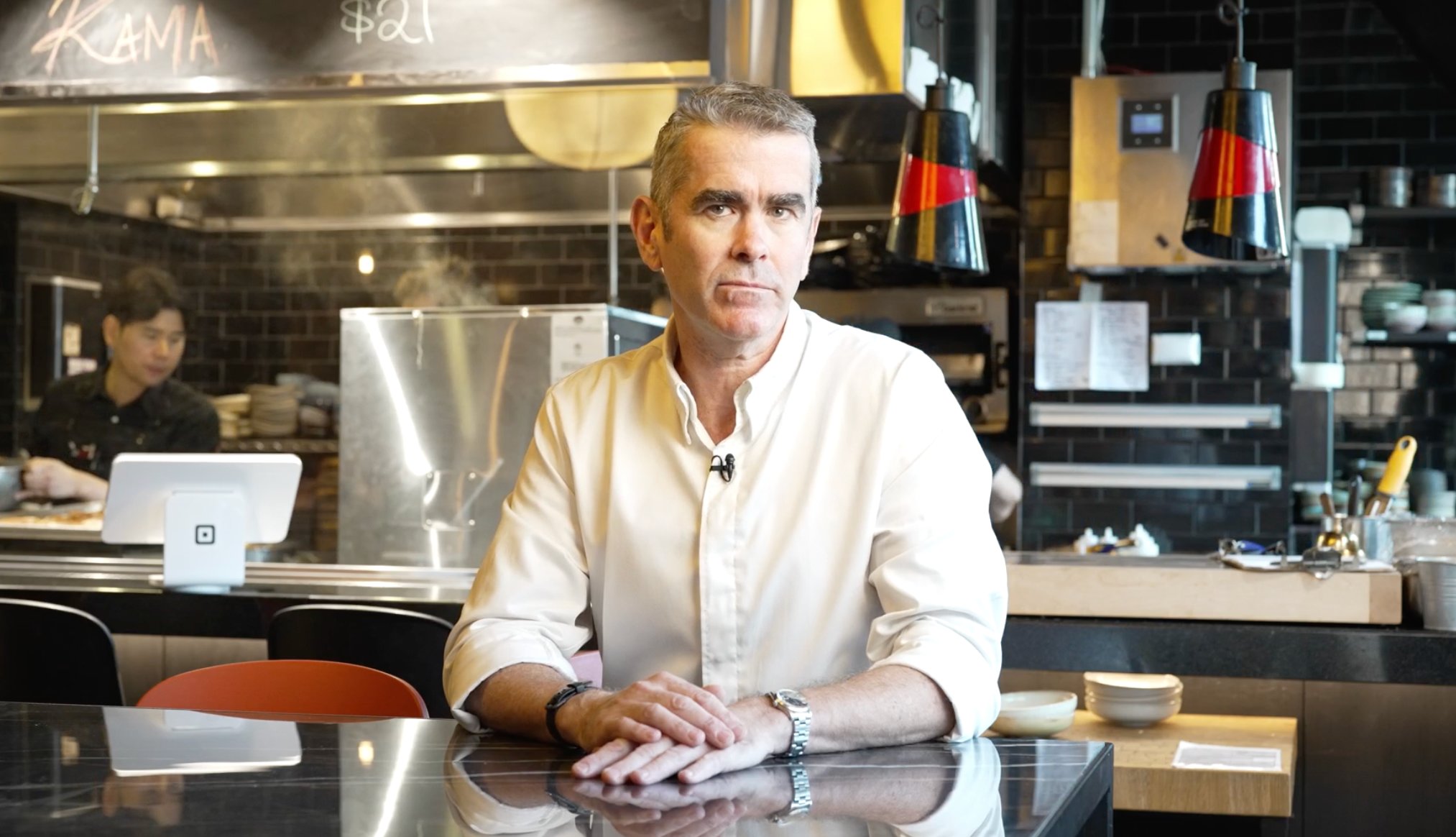Cultural Chef Exchange is a five- week-long programme developed with one of Canada’s most acclaimed chefs, restaurateurs and environmental advocates, Chef Darren MacLean. The exchange seeks to actively promote Canada’s culinary background and cross-cultural character around the globe. Square sponsored Cultural Chef Exchange and powered this mentorship series consisting of five topics, to share techniques, knowledge and discussion of important issues the restaurant industry faces from environmental stewardship to food waste and sustainability from successful chefs and restaurant owners from across the world.
The second year of Chef Darren MacLean’s Cultural Chef Exchange is underway in Calgary, AB, where MacLean recently met with visiting Chef Shane Osborn to fish for trout in the Canadian countryside and discuss how restaurateurs can demonstrate leadership, motivate staff and encourage employee retention in their restaurants. Read on to learn more about their conversations, which have been edited for clarity.
The qualities of a good leader
DM: Being able to maintain composure under pressure is, in my opinion, the most important quality of a good leader. A great mentor of mine once described being a chef as being like the captain of a ship during a battle. If the bombs are flying and the ship is sinking, the captain goes down with the ship. If you’re in charge and you’re freaking out in the kitchen, how are the people working with you going to be calm if you’re not leading with calm? Leading by example is crucial. I’ll never ask an employee to do anything I’m not prepared to do myself, and when they understand that it builds trust and confidence amongst the staff.
Encouraging fun in the workplace is also really important. The pressures of fine dining come with a need for levity. You have to crack a few jokes once in a while. We acknowledge that we are not saving lives, we’re making food.
SO: It’s a very stressful position to be a head chef at a Michelin-starred restaurant. There’s so much more to a restaurant than cooking food. You have to talk to the press when there are public relations opportunities, you have to handle the supplies, manage guests and staff expectations, it’s a huge job. As a leader, my role is to be a sounding board for my head chefs. They need to know that if they have issues popping up, or they need advice about menu design or planning they can come to me. I’m there for them when they need to air their grievances or stresses, or when they just need someone to talk to.
To be a good leader, you have to have patience. You need to be able to recognize the skillsets of your employees, because not everyone will learn at the same pace. Once you have an idea of your staff’s strengths you can position them properly in the kitchen. Just like a football coach would, you put your players in the best position for the team. Some people are better at cooking meat and fish, some might be better at making pastry. It’s about understanding your employees.
Streamlining restaurant operations to focus on food
DM: Running a restaurant is so nuanced and complex, there are just so many barriers that keep me away from my kitchen. One of the most challenging things for me is that I’m not great at emails. I’m not good at a lot of the administrative work that needs to be done to keep things running. As a chef, I’m much better behind a stove. Using Square for Restaurants has allowed me to manage my time so efficiently. A lot of the dreaded administrative tasks, the cost control, the inventory management, the POS system, they are all taken care of. My team is able to coordinate with me and share data in real time, so that we can make changes on the fly to help guarantee that we are always profitable. And I can check in on the numbers while tossing a pan with my other hand.
Keeping employees engaged on a day-to-day basis
SO: We change our menus pretty much weekly and create a lot of specials at our restaurants, so that provides a lot of consistent in-house training. When your staff is learning new techniques all of the time, they stay inspired and want to keep learning, and they will look forward to coming in every day to see what we’re going to do next. Giving staff input on the dishes on the menu is also helpful for motivation. We’ll have a chat about ingredients that just came into season, and throw some ideas at them and ask them to conceptualize the dish. Then I’ll help tweak it and we’ll put the dish on the menu. The staff get to go home to their friends and family and tell them that they helped to create a dish for a Michelin-starred restaurant, which gives them a huge sense of achievement and pride. I think that having staff contribute their ideas and become a part of the creative process is an important part of keeping them inspired.
Retaining staff in the long run
DM: I have two pieces of advice to a restaurant manager on how to retain employees. The first is to schedule shifts as far in advance as possible. Square Team Management allows us the opportunity to schedule our team’s shifts weeks in advance, so no one is surprised by requests for time off. Instead of them planning their life around work, we can plan work around their life.
The second and most important piece of advice is that people need financial incentives in order to stay at a job. It doesn’t matter how many mission statements you make or how many parties you throw, at the end of the day, if someone can’t make a living wage, it doesn’t matter. This is why restaurateurs have a responsibility to find a way to be as profitable as possible so they can give their teams financial incentives, like regular raises. You may find you retain staff longer because they feel like they are being rewarded for the work they’ve done, especially if they are given room to learn. You can help your team develop new skills, and then you can pay them accordingly when they are able to use those new skills in the restaurant. Your goal should be to help your staff grow so that they can do the work they love to do in a financially viable way.
About the Chefs

Chef Shane Osborn
Shane Osborn has worked in many acclaimed kitchens, including L’oranger in London that garnered a Michelin star in 1996, and Pied à Terre which won a second star in 2003. Since 2014, Osborn runs his own restaurants in Hong Kong, Arcane, which holds one star for its seasonal fare that blends the cuisines of Japan, the United Kingdom, and France, Moxie and the recently opened Cornerstone.

Chef Darren MacLean
One of Canada’s most acclaimed chefs, restaurateurs, and environmental advocates, Chef Darren MacLean was Canada’s sole contender and a finalist on Netflix’s global cooking competition ‘The Final Table.’ MacLean is passionate about sustainability and the food building community. While he regularly participates in events as an educator, speaker and culinary judge in Canada and abroad, he is happiest in his kitchens.
